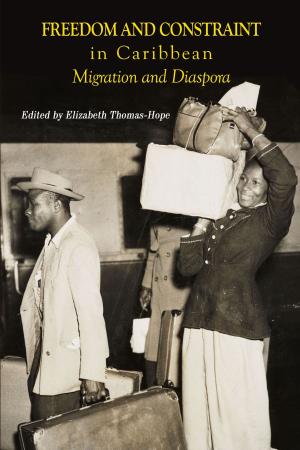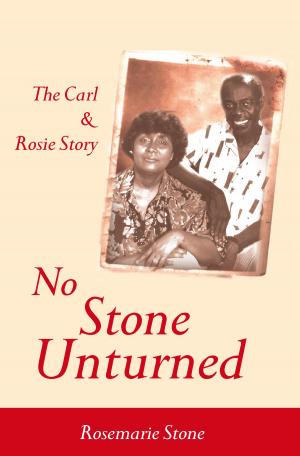Elections, Violence and the Democratic Process in Jamaica, 1944-2007
Nonfiction, Social & Cultural Studies, Political Science, Politics, Leadership, Government, Political Parties, Elections| Author: | Amanda Sives | ISBN: | 9789766376826 |
| Publisher: | Ian Randle Publishers | Publication: | July 17, 2014 |
| Imprint: | Language: | English |
| Author: | Amanda Sives |
| ISBN: | 9789766376826 |
| Publisher: | Ian Randle Publishers |
| Publication: | July 17, 2014 |
| Imprint: | |
| Language: | English |
Since the achievement of adult suffrage in 1944, Jamaican democracy has remained resilient. Fifteen general elections have been held; the results have been accepted by the contending parties and the democratic process has survived. Within the wider Latin American and Caribbean region, Jamaica has been a stable, functioning democracy, but it has faced a number of significant challenges. In this book, Amanda Sives examines one of those key difficulties: the relationship between politics and violence in the former British colony involving supporters of the two main rival political parties, the Jamaican Labour Party and the People s National Party. Unlike other countries within the region, it has occurred within the confines of the democratic process and sought to influence the electoral outcome rather than overthrow the state. Tracing the rise and decline of partisan political violence, through an examination of elections since 1944, Sives argues it cannot be understood outside of this historical framework.
Referencing an extensive bibliography as well as numerous first-hand interviews with key political players as well as activists at the grassroots level, Election, Violence and the Democratic Process in Jamaica posits that partisan political violence is not simply a fight for scarce benefits but needs to be understood as part of political identity formation and political culture. Sives concludes that while the reformed electoral process provides an example of best practice for other developing countries, until the peculiar Jamaican problem of party-controlled garrisons is addressed, the democratic process will remain flawed.
A ready reference for the student, politician and general reader alike, Elections, Violence and the Democratic Process in Jamaica provides an insight to the Jamaican political culture.
Amanda Sives is a lecturer in Politics at the University of Liverpool. Her main research expertise lies in the politics of the Caribbean with a particular emphasis on Jamaica.
Since the achievement of adult suffrage in 1944, Jamaican democracy has remained resilient. Fifteen general elections have been held; the results have been accepted by the contending parties and the democratic process has survived. Within the wider Latin American and Caribbean region, Jamaica has been a stable, functioning democracy, but it has faced a number of significant challenges. In this book, Amanda Sives examines one of those key difficulties: the relationship between politics and violence in the former British colony involving supporters of the two main rival political parties, the Jamaican Labour Party and the People s National Party. Unlike other countries within the region, it has occurred within the confines of the democratic process and sought to influence the electoral outcome rather than overthrow the state. Tracing the rise and decline of partisan political violence, through an examination of elections since 1944, Sives argues it cannot be understood outside of this historical framework.
Referencing an extensive bibliography as well as numerous first-hand interviews with key political players as well as activists at the grassroots level, Election, Violence and the Democratic Process in Jamaica posits that partisan political violence is not simply a fight for scarce benefits but needs to be understood as part of political identity formation and political culture. Sives concludes that while the reformed electoral process provides an example of best practice for other developing countries, until the peculiar Jamaican problem of party-controlled garrisons is addressed, the democratic process will remain flawed.
A ready reference for the student, politician and general reader alike, Elections, Violence and the Democratic Process in Jamaica provides an insight to the Jamaican political culture.
Amanda Sives is a lecturer in Politics at the University of Liverpool. Her main research expertise lies in the politics of the Caribbean with a particular emphasis on Jamaica.















